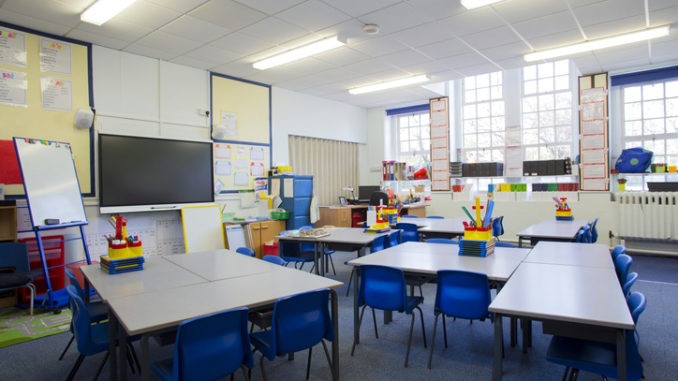
The National Education Union and the Association of School and College Leaders have commented on the prime minister’s statement confirming that all schools can open fully from 8 March
In response to the news on the full reopening of schools Dr Mary Bousted, joint general secretary of the National Education Union, said: “Today’s announcement that all pupils will return to English schools on 8 March demonstrates, again, that Boris Johnson has, despite all his words of caution, failed to learn the lessons of his previous mistakes.
“Whilst cases of COVID infection are falling, along with hospitalisation rates, it remains the case, unfortunately, that cases are three times higher now than when schools re-opened last September. This fact, alone, should have induced caution rather than, in the words of Nadhim Zahawi an ‘ambitious’ school return which runs the risk of schools, once again, becoming, in the prime minister’s words on 4 January, ‘vector of transmission’ into the community. This risk is greatly elevated because of the new variants of COVID which are significantly more transmissive.
“Why has the English government not taken the same route as Scotland, Wales or Northern Ireland whose cautious, phased approach to school opening will enable their governments to assess the impact a return to the classroom will have on the R rate and to make necessary adjustments to their plans.
“A ‘big bang’ school reopening brings 10m people back into crowded buildings with no social distancing and inadequate ventilation. The wearing of face masks by pupils and staff in in secondary school lessons is a welcome measure but it is not, on its own enough. The government has had two months to put extra mitigations in place to stop the growth in infection in schools that was seen from September to December. Where are the ventilation units for classrooms? Where are the nightingale classrooms? Where is the PHE testing which school leaders could rely upon to give more accurate results? It is no good political parties talking about these safeguards when they know very well that they have not been put in place and will not be put in place by 8 March. Words are cheap. Actions are needed.
“The government must publish the science and the modelling which informs their unique school return plan. It should also make plans to protect vulnerable and older education staff who should be supported to work from home until their vaccinations take effect.
“While schools and colleges will, as always, go the extra mile, headteachers should have been given the flexibility offered in the other nations to plan for a phased school return. It would have been far better to take that time to plan and implement a successful and sustainable wider opening – which today’s announcement does not, unfortunately, guarantee.”
Also commenting, Geoff Barton, general secretary of the Association of School and College Leaders, said: “We share the government’s aim of returning all children to school as soon as possible, but we are concerned that its decision to press ahead with a full return on 8 March may prove counterproductive and lead to more disruption.
“It is very difficult to understand why the approach in England is so different from the decisions taken in Scotland, Wales, and Northern Ireland for a more cautious, phased approach to full school reopening, particularly as the COVID infection rate is actually higher in England than in Scotland and Wales.
“Just today, the Welsh Education Minister has said that the phased and careful approach in Wales is consistent with UK-wide advice.
“We fear that England’s less cautious approach runs the risk of increasing the rate of infection and prolonging the damaging cycle of stop-start schooling, and we will be studying the data carefully to understand the rationale for this decision.
“It is also concerning that the decision in England comes on the same day that ONS statistics suggest there is an elevated risk to education staff of contracting coronavirus, contrary to the assurances from the government over the past few months that this is not the case.
“Nevertheless, we will, of course, now work with the government to try to make this plan work as safely and sustainably as possible.
“Of immediate concern is the huge logistical challenge facing secondary schools and colleges of having to manage the mass testing of pupils for coronavirus. This requires setting up testing stations on site and having significant numbers of staff to operate them. “This may mean that the return of pupils has to be staggered over a minimum of two weeks, and we expect the government to show a spirit of understanding.”


Be the first to comment